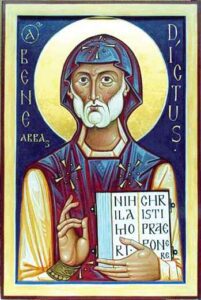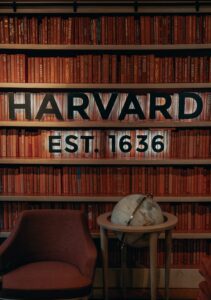Christian Origin of Universities
The Christian Origin of Universities
The Christian origin of universities has recently been recognized as one of the greatest contributions of Christianity to the larger society.
The ancient Greco-Roman world certainly had its philosophers, poets, and great thinkers and orators. All these great thinkers were involved in higher education as they wrote extensively regarding their area of interest. Some historians have even suggested these thinkers developed the first “universities.” The renowned Harvard history professor Charles Haskins was primarily interested in academic medieval history. He is widely recognized as the first academic medieval historian in America. He was primarily interested in medieval universities and governments.
Haskins noted that although the great philosophers of the ancient Greco-Roman world developed local schools and had students who would further extend their philosophies, none of them developed libraries, had no guild or scholars, and certified nobody as being proficient in their chosen field. They also tested no theories, engaged in no research, and frequently spurned the inductive method of logic. He argued that the introduction of the university system in the twelfth century is a completely new development.
Monasteries

St. Benedict – By Unknown author – http://www.svetigora.com/node/976, Public Domain, Link
The modern university can trace its origins to medieval monasteries. The most commonly agreed upon origin is with Benedict of Nursia (480 – 543) who founded the Benedictine order’s first monastery at Monte Cassino, Italy, in 528. He was soon able to build monasteries in many other locations.
The monasteries served as places of education for the monks and also for the storage of the literary treasures of ancient history and Christianity. The Benedictines developed an elaborate library system in their monasteries where they collected books, copied manuscripts, loaned books to other monasteries, and required the monks to read books every day.
These monasteries were a place of learning – but primarily for the monks who stayed there. Full-fledged universities had to wait a few hundred years with the first arising in the twelfth and thirteenth centuries.
The commonly cited first university is the University of Bologna, Italy which was founded in 1158. This university specialized in education regarding canon law.
The next university to be organized was the University of Paris with its founding in 1200. The University of Paris specialized in the teaching of theology with the addition of medicine in 1270.
Other universities then spread throughout Europe including Oxford University and then schools in Portugal, Germany, and Austria. According to Haskins, the modern university is “the lineal descendant of medieval Paris and Bologna.”
Universities had Christian Origin

Harvard University was founded as a Christian school.
The universities evolved from their monastic roots as Christian institutions throughout the world until the nineteenth century. This was true whether the university specialized in law, medicine, or some other discipline. Many colleges and universities demonstrated their religious background with their names including St. Anne’s, St. Anthony’s, St. Mary’s, St. Bernards, ST. Olafs, and many others. Other colleges receiving names such as Christ, Trinity, Emmanuel, King’s College, and so forth.
Many colleges receive much of their money from grants supporting research. When an investigator applies and gets a grant to study something, the supporting university gets a portion of that grant to provide the proper facilities to do the research.
Ancient universities also engaged in some forms of research. The University of Bologna with its school of law would dissect human cadavers to settle lawsuits. This practice then spread to universities specializing in medicine. King Charles VI of France in 1340 ordered that each year a cadaver of a criminal would be delivered to the university at Montpellier for anatomical study.
Before the onset of universities where actual empirical research would occur, there was very little research of well-accepted theories. With few exceptions, ancient Greece and Rome did not test their theories. Instead, ancient thinkers developed their theories more as a philosophical conjecture than a scientifically proven fact. Aristotelian concepts were accepted as fact until the Reformation subjected them to scientific study.
Educated Greek and Romans viewed all forms of manual labor as fit only for the slaves and uneducated. Since empirical research required work, the theories proposed by ancient Greeks and Romans were never tested. In the ancient Benedictine monasteries, manual labor of some form was considered the duty of each monk to support their community. Since Christianity proposed an orderly universe, it was not a big step for the monks used to manual labor to begin the empirical study of the laws of nature.
Medieval Universities

Justin Martyr
The earliest Christians viewed the world as discoverable through reason. Understanding of the world through this reason would be in addition to the understanding given to man through revelation. Justin Martyr saw Christian revelation as the fulfillment but not the elimination of philosophical understanding.
Christian revelation was considered consistent with scientific knowledge. Theology was called the “queen of the sciences” and encouraged exploration of the natural world to better understand God and his purpose.
Before the establishment of universities in Europe, higher education took place in Christian cathedral schools or schools held in monasteries. These forerunners have a history dating back to the 6th century soon after the first monasteries were established.
The Gregorian Reform movement refers to a series of changes initiated by Pope Gregory VII in the eleventh century. These reforms dealt with the moral integrity and independence of the clergy from secular control. As a response to these reforms, bishops had formed cathedral schools to train clergy in religious law, but also more secular education. Pope Gregory promoted the concept of a modern university in his 1079 Papal Decree ordering the establishment of cathedral schools which then transformed themselves into the first European universities.
The establishment of these universities led to increasing educational requirements for priests and bishops. The universities in medieval Europe became important in clerical advancement and were attended by some of the greatest theologians living at that time. For example, Thomas Aquinas and Robert Grosseteste were graduates of this university system.
Interestingly, medieval universities did not exist in physical facilities such as the modern campuses of today. Instead, classes were taught wherever space became available. This space might be churches or the private homes of teachers or students. Schools were organized differently; in some of the schools as in Bologna, students hired and paid the teachers. Other schools as Paris paid their teachers by the church. The third structure was where the state paid the teachers as in Oxford and Cambridge.
Teachers ran the university in Paris independently of the church and government, making it a prime choice for teachers to seek employment. Most universities gave all instruction in Latin, and students were expected to converse in that language as well. The trivium consisted of grammar, logic, and rhetoric. The quadrivium consisted of arithmetic, geometry, music, and astronomy. The curriculum also includes the three Aristotelian philosophies of physics, metaphysics, and moral philosophy.
There were no elective offerings at medieval universities; all courses were required. Students often entered the university at fourteen to fifteen years of age, although many were older.
Colleges and Universities in America

Christian School – Image by Christine Schmidt from Pixabay
Today’s colleges and universities are largely secular institutions with little need for Christianity. Most Americans would be surprised to learn that
every collegiate institution founded in the colonies before the Revolutionary War – except the University of Pennsylvania – was established by some branch of the Christian church.
Most of the colleges and universities in America began as Christian schools. For example, Harvard College (now Harvard University) was established in 1636 by the Congregational Church as a theological institution. The College of William and Mary was started as an Episcopalian school mainly to train clergy. Yale University – one of the most secular colleges in the nation – began as a Congregational institution to “Educate Ministers in our Own Way.”
The Methodists founded Northwestern University, while Columbia University – first known as King’s College – began with the Episcopal Church. Princeton University started as a Presbyterian school while Brown University started with Baptists origins.
Today, these universities have abandoned their Christian heritage and have become bastions of secularism. Even though they are no longer Christian institutions, they owe their founding to some branch of Christianity.
Summary
Christianity has changed the world for the better.
People who are Christian live longer, graduate more, stay out of jail more, give more to secular charity, and contribute more to society than their secular neighbors.
What many of their secular neighbors may not recognize is that the university where they went when younger was founded by a Christian denomination or has its origins based on Christianity.
Christians believed the world was organized and not random. Because it was organized, it was knowable and could be understood using science. Many early scientists were also devout Christians who became scientists to learn more about God and his universe.
Many people spent years in higher education but have learned nothing about the contributions of Christianity to modern education.





Hi. I’ve just gone through this detailed information article you’ve share with us here about Christian origin of universities. Having great and proper knowledge of your historical roots is very important as they always say, to know where you are going, you must remember where you come from. I honestly didn’t know that every collage and university in America began as Christian schools. You’ve clearly stated that today most collages and universities have little need for Christianity, do you know what could be the reason? I’m waiting to hear from you.
Nearly all universities throughout the USA have become very secularized, many to the point of being anti-Christian.
There are a few exceptions where Biblical Christianity is still being prioritized – mostly in private universities where the message can be more controlled. I am thinking of Liberty University in Lynchburg, VA, Brigham Young University in Provo, UT, and Bob Jones University in Greenville, SC among only a few others.
I doubt if many Christian parents sending their children to secular universities today recognize the anti-Christian bias their children will be subjected to. They will be ridiculed, marginalized, and accused of being non-accepting and intolerant.
Unfortunately, the anti-Christian bias is so prevalent that a professing Christian has little chance of getting an appointment at most universities today. If you are a socialist or Marxist – you will have no problem being employed.
The major secularization throughout American universities occurred over the last century as most mainstream denominations became more liberal and “accepting,” and eventually the school became independent of its founding principals.
Thanks for your insightful comment!
Dave.
Oh I love the St. Benedict iconography masterpiece. It’s so pitty that the author is unknown. This makes me share that I started studying iconography and it’s been a transformational journey. I love it! We don’t have Christian Origin Universities in my country even though Orthodox Christianity is the only religion here. It was for me always interesting to hear that in the Catholic countries you can find so many Christian schools and universities. Thanks for sharing this thorough article.
Hi, Sunny!
Thanks so much for your comment and pleased to meet you.
I enjoy writing these articles as they help me to focus my thoughts and understand Christianity more fully and the contributions it has made to the world society.
Dave.